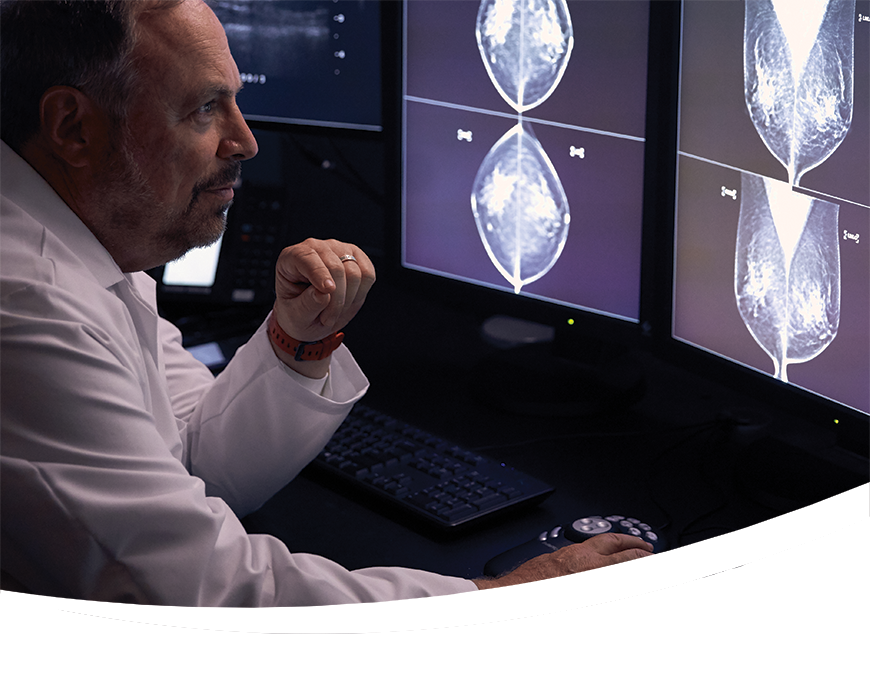Clinical Innovation: What's on the Horizon for the Industry of Mammography

As the nation's largest independent mammography provider, Solis Mammography serves as a real-world data hub for our own proprietary clinical research, as well as a collaborator and vital partner for technology innovators. In the years ahead, we’ll continue to take the lead in exploring the possibilities posed by new technologies and furthering the adoption of those solutions that provide positive, clinically-proven results.
Contrast-Enhanced Mammography (CEM)
CEM combines an iodinated IV contrast agent with digital mammography for advanced imaging beyond a normal mammogram to improve breast cancer detection. It is becoming a powerful screening tool in the high-risk patient population, as well as a complementary tool in the diagnostic setting.
Of benefit to breast surgeons for staging and presurgical planning, CEM is a streamlined alternative to MRI with faster results at a lower price point. Solis Mammography has been actively involved in the research, testing and implementation of CEM over the last two years. Several of our Houston centers will begin offering this new screening tool this year.
Genetic Testing and High-Risk Screening
In the 1990s, genetic testing added a new dimension to mammography screening. By identifying BRCA 1 and BRCA 2 mutations, women who were at high risk of developing breast cancer could be identified. However, this first generation of genetic testing missed nearly half of the patients subsequently diagnosed with breast cancer. We’re now on the cusp of a new era of genetic testing and high-risk screening. In the last two decades, more than a dozen other gene mutations related to breast cancer have been identified. In addition, the advances in genetic research and technology are also driving down the costs of genetic screening; today, a broader panel of tests can be conducted for about one-tenth the cost of the genetic screenings in the 1990s.1
Solis Mammography, in concert with Sarah Cannon, the Cancer Institute of HCA Healthcare, is developing a high-risk women’s screening program that will help determine a patient’s life-time risk of breast cancer with prescribed recommendations for care.
1 Ricks, Delthia. “Genetic Testing Guidelines for Breast Cancer Are Outdated, Study Finds.” Newsday, 18 Dec. 2018